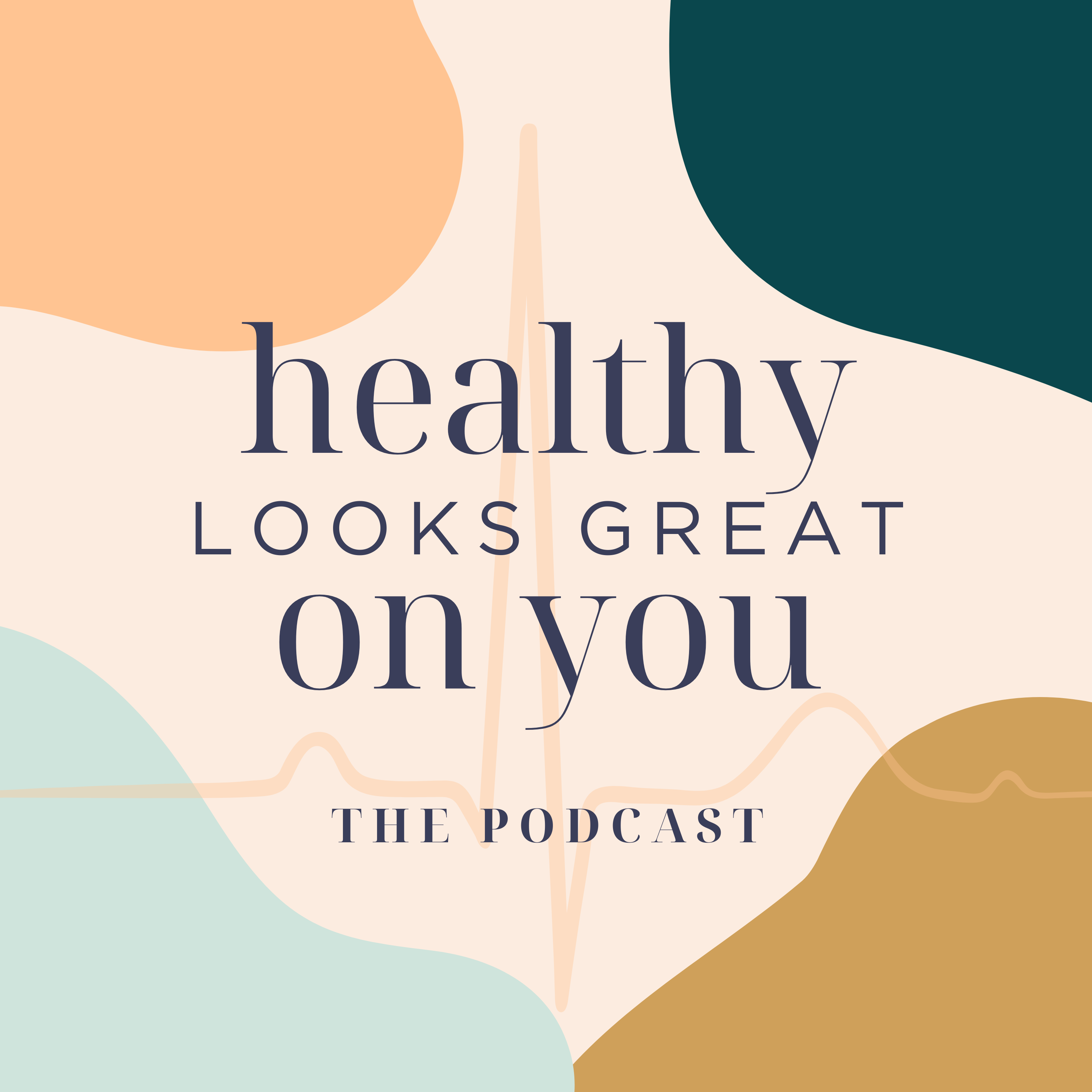Maintaining muscle mass as you age isn’t inevitable. Learn what causes muscle loss, why it matters, and how to stay strong at any age.

Black Friday Healthy Buy Guide
Get ready, friend — this Thanksgiving week I’m serving up a special bonus episode! I’m walking you through my Black Friday shopping list filled with my favorite tools from all six pillars of lifestyle medicine: fitness, nutrition, sleep, social connection, stress management, and minimizing risky substances. These are the products I use, love, and recommend every day inside my own home and with my patients.
From walking pads and rowing machines… to cookbooks I’ve discussed with their authors… to my go-to sleep tools and holiday-stress survival gadgets — this episode gives you a curated list to support your health during the busiest season of the year.
If you’ve been wanting to invest in your well-being, refresh your habits, or find meaningful gifts for people you love, this Black Friday guide makes it simple. I share why each item matters for your health and how it supports the pillars that help you feel better, sleep better, and live fully.
Think of this one as your personal shopping companion — minus the crowds and the impulse buys.
FITNESS LINKS:
Movement is medicine, and no, shopping steps do not count, especially if you’re shopping online!
-
Body Pod – Let me tell you about my love/hate relationship with this thing.
-
Peloton – go big or go home!
NUTRITION LINKS:
The cookbooks, kitchen tools, and healthy staples I use every week.
- Blue Zones Cookbook – I use this one a lot!
- How Not to Die – the nice cream recipe is included.
- Reversing Diabetes Cookbook
- Power Foods for the Brain
- The Brain Food Cookbook (based on the MIND diet)
- Ninja Blender – can you say smoothies!
- Instant Pot – saves me time.
- My favorite kitchen gadget
- Cutting Boards
- Kitchen Knives – chopping is a great stress reliever too.
- Hibiscus Elderberry Tea
- Stanley Cup to stay hydrated!
SLEEP LINKS:
Because holiday chaos calls for cooling sheets and lavender cream.
-
Sleep mask – I use this every single night.
-
Ugg socks – warm feet promotes better sleep.
Games + books that help you build friendships and memories.
-
Sabbath Soup You might be surprised to see this one under connection instead of nutrition. Listen to my interview with the author to find out why. Kathi Lipp.
-
Code Names – my old favorite game for a group.
-
Cribbage – we travel with this one.
-
Monopoly Deal – my new fav.
-
The Friendship Initiative by Amberly Neese who was on my podcast. Listen here.
-
Tales – I am excited about this one.
STRESS MANAGEMENT LINKS:
Tools to help calm your mind… or at least survive Thanksgiving with your sanity intact.
- Air Pods
- Stronger than Stress by Barb Roose. You can listen to my convo with her here.
- Fidget Spinner
- Adult Coloring Book (New Mercies)
- Prayer Journal
- Closet organizers – decluttering helps clear stress.
- Robe – nothing says relaxed more than a cozy robe.
- Yoga Mat
MINIMIZING HARMFUL SUBSTANCES LINKS:
Some of the most powerful books I’ve read about habits, healing, and resilience.
- Dopamine Nation listen to my interview with this author, Dr. Anna Lembke here.
- Nicotine replacement
- Dopamine Nation Workbook
- Celebrate Recovery Workbooks
In 2017 I wrote a short book, “Dressing the Wound; Give Yourself the Gift of Forgiveness.” It’s on sale for $5.75.
Black Friday Healthy Buy Guide
Ready to Kickstart to lost belly fat and live healthier?
7-Day Mini-Course designed to kickstart real, lasting health. This isn’t another “perfect plan.”
It’s your real-life solution for getting healthy without overhauling your life overnight.
Hosted by:
Vickie Petz Kasper, M.D.
American Board of Lifestyle Medicine Diplomate
Learn more about Dr. Vickie
Three Simple Strategies to Sleep Better
Download your free cheat sheet to start sleeping smarter tonight.

Need a kickstart to healthier habits?
Enroll in Kickstart to Lose Belly Fat and Live Healthy ($47)
Related Episodes
Maintain Muscle Mass as You Age
Is Butter Better? The Facts about Fats
Is Butter Better? The Facts About Fats7-Day Mini-Course designed to kickstart real, lasting health. This isn’t another “perfect plan.”It’s your real-life solution for getting healthy without overhauling your life overnight.Hosted by: Vickie Petz Kasper, M.D. American...
Frozen Shoulder with Preeti Jha, DPT
Frozen shoulder in menopause explained. Learn early signs, stages, and movement tips to prevent stiffness and protect long-term mobility.






